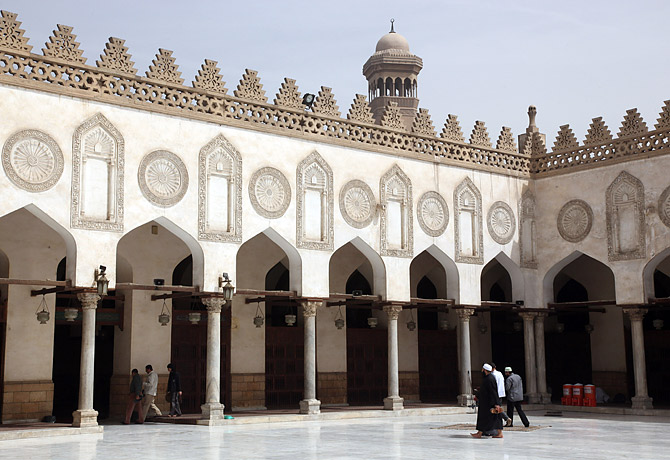UNICEF and Al-Azhar University released a new manual designed to underscore how the care, protection and development of children is central to Islam.
The manual, Children in Islam, their Care, Protection and Development, includes research papers and extracts of Quranic verses, Hadiths and Sunnas that provide useful guidance on childrens’ rights to such things as health, education and protection. UNICEF and Al-Azhar University say they hope the manual will be used widely to advance the well-being of children in Islamic countries and communities.
“Children in Islam, their Care, Protection and Development is a magnificent work that underlines and illustrates what Islam offers in terms of caring for and nurturing childhood, for this is the process of preparing future generations, said Sheikh Tantawi, the Grand Sheikh of Al-Azhar University in the manual’s foreword. “Children are a gift from Allah Almighty; they are a trust in our custody.We must, therefore, care for and protect them by means of implementing the teachings of Islam. Despite some noteworthy progress, a disproportionate number of the more than 600 million children across the Islamic world face enormous challenges, from poverty and disease to lack of education and protection. Meeting the needs and guaranteeing the rights of these children – who account for more than a quarter of the world’s 2.3 billion children – are key to the success of overall efforts to combat poverty, accelerate human development and build a more peaceful future.
“Children in Islam, their Care, Protection and Development can make a critical difference for millions of children in the Muslim world by putting information related to child survival, development and protection from the perspective of Islam into the hands of those who can use it effectively — Imams, Islamic religious leaders and others who are working with children, their families and communities, said UNICEF Deputy Executive Director Rima Salah.
An earlier publication by UNICEF and Al-Azhar University entitled Child Care in Islam, was published in 1984 and focused mainly on issues relating to the survival of young children. However, new problems threatening child well-being have since come into focus. These include female genital mutilation/ cutting (FGM/C), child labor, child trafficking and HIV/AIDS. The manual helps make clear that harmful traditional practices often falsely associated with Islam, such as FGM/C and gender discrimination in education, are not mentioned in the Quran and have no basis in Islamic law.
The new manual reflects the broader vision for children that has emerged since Child Care in Islam was published over two decades ago. The Convention on the Rights of the Child has now been ratified by every Islamic country except Somalia, and the world has come to recognize the broad spectrum of social, economic, cultural and civil rights to which all children are entitled.
UNICEF and Al-Azhar University hope the information and messages contained in Children in Islam, their Care, Protection and Development will be widely disseminated and used by a broad range of partners working in Islamic countries and communities, including religious leaders, governments, the UN system, nongovernmental organizations, media and others.
In addition to eminent representatives of Al-Azhar University and UNICEF, a number of Sharia scholars and one Arab member of the Committee on the Rights of the Child were among a wider group who reviewed and commented on the manual before it was finalized.
Representatives of international and Islamic organizations, funding institutions, governments, non-governmental organizations, academic institutions and the broader faith community attended the event at Al-Azhar University’s main Conference Hall to present and release the new manual.
Al-Azhar University is one of the world’s oldest universities. It was founded about A.D. 970 in Cairo, Egypt, and is a center of Islamic learning. Al- Azhar University offers courses in Islamic theology, Islamic law, Arabic studies, medicine, engineering and agriculture. About 90,000 students attend the university, which has two major campuses in the Cairo area and four campuses located in other cities in Egypt.
The International Islamic Center for Population Studies and Research was established at Al-Azhar University in cooperation with the United Nations Population Fund. The Center works to dispel misconceptions about Islam and population policies that can be adopted in the Muslim societies.
This it achieved through conducting research in the Islamic world, and to add credibility to the population information obtained before its dissemination in these countries. Furthermore, it operates as an inter-regional organization with a view to serving the entire Islamic World.- Courtesy of UNICEF.

